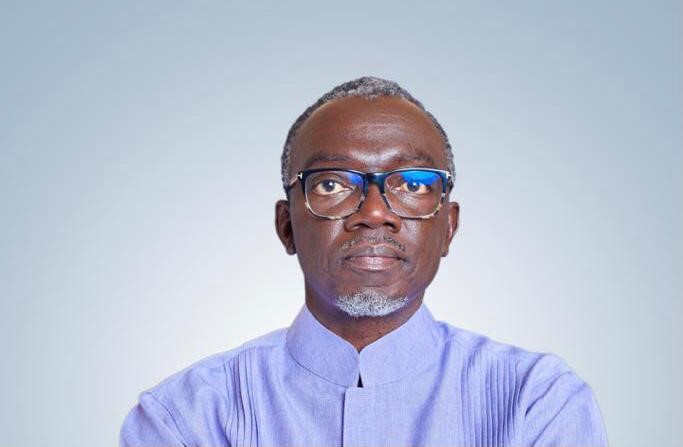The UN’s Sustainable Development Goal 15 is about protecting and preserving life on land. It’s aimed at ensuring that our precious natural resources and ecosystems, like forests and wildlife habitats, are conserved for future generations.
This goal’s primary objective is to emphasise the vital responsibility of safeguarding and conserving our invaluable natural resources and ecosystems. These encompass a wide range of irreplaceable assets, including but not limited to lush forests, thriving wildlife habitats, and critical biodiversity hotspots. (UN 2023)
According to the United Nations Sustainable Development Goals Report(2022), the significance of healthy ecosystems and their biological diversity cannot be overstated. They offer vital goods such as food, water, medicine, shelter, and essential ecosystem services, such as purifying air and water, which sustain life and enhance resilience against growing challenges.
The impact of human actions on ecosystems is a cause for concern. A recent report from 2022 highlights that in the coming decades, almost 40,000 species are at risk of extinction. Furthermore, a staggering 10 million hectares of forest, equivalent to Iceland’s size, are lost yearly, and over half of vital biodiversity areas remain unprotected. These facts underscore the urgent need for global leaders to take action to protect the environment and preserve the diversity of life on planet Earth.
The initial targets of UNSDG 15 are focused on addressing issues such as sustainable forest management, combatting desertification, stopping and reversing land degradation, and halting biodiversity loss. Some of the specific targets include:
- By 2020, ensure the conservation, restoration and sustainable use of terrestrial and inland freshwater ecosystems and their services, in particular forests, wetlands, mountains and drylands, in line with obligations under international agreements
- By 2020, promote the implementation of sustainable management of all types of forests, halt deforestation, restore degraded forests, and substantially increase afforestation and reforestation globally.
- By 2030, combat desertification, restore degraded land and soil, including land affected by desertification, drought and floods, and strive to achieve a land degradation-neutral world.
- By 2030, ensure the conservation of mountain ecosystems, including their biodiversity, to enhance their capacity to provide benefits essential for sustainable development.
- Take urgent and significant action to reduce the degradation of natural habitats, halt the loss of biodiversity and, by 2020, protect and prevent the extinction of threatened species.
- Promote fair and equitable sharing of the benefits arising from the utilisation of genetic resources and promote appropriate access to such resources, as internationally agreed.
- Take urgent action to end poaching and trafficking of protected species of flora and fauna and address both the demand and supply of illegal wildlife products.
- By 2020, introduce measures to prevent the introduction, significantly reduce the impact of invasive alien species on land and water ecosystems, and control or eradicate the priority species.
- By 2020, integrate ecosystem and biodiversity values into national and local planning, development processes, poverty reduction strategies and accounts
- Mobilise and significantly increase financial resources from all sources to conserve and sustainably use biodiversity and ecosystems
- Mobilise significant resources from all sources and at all levels to finance sustainable forest management and provide adequate incentives to developing countries to advance such management, including conservation and reforestation.
- Enhance global support for efforts to combat poaching and trafficking of protected species, including by increasing the capacity of local communities to pursue sustainable livelihood opportunities.
While many countries remain committed to preventing further degradation of ecosystems and sites critical to biodiversity, the Sustainable Development Goals Report highlights specific continued areas of concern regarding life on land.
Forests are still shrinking
The world’s forested area is shrinking. Although the decline is slower than in previous decades, forest areas continue to decline, with an average of 10 million hectares of forest destroyed yearly.
“Agricultural expansion is driving almost 90 per cent of global deforestation, including 49.6 per cent from expansion for cropland and 38.5 per cent for livestock grazing” (Sustainable Development Goals Report, 2022).
Species extinction risk unprecedented in human history
Risks associated with species extinction are increasing at an alarming rate.
According to the report, “the Red List Index, which measures the overall extinction risk of species in selected taxonomic groups, reveals a deterioration of 9.2 per cent between 2000 and 2022.”
“Central and Southern Asia, Eastern and South-Eastern Asia, and small island developing States suffer from more severe risk and faster deterioration than the global average.”
The main reasons for these declines include unsustainable agricultural practices (especially logging and farming) and unsustainable harvesting of wild species.
Ghana’s biodiversity is confronted with many threats stemming from diverse activities such as land-use conversions, habitat degradation, over-exploitation, invasive illegal mining, climate change, predation, wildfires, and poaching. These factors have contributed to a decrease in the country’s biodiversity.
According to a recent Ghana Climate Change Report (USDA, Foreign Agricultural Service, 2023), “Ghana has two broad ecological zones, the Forest Zone, which covers 30 percent of the southern region, and the Northern Savannah Ecological Zone, which covers the remaining 70 percent of the country.”
Another recent report by Mighty Earth noted that Ghana’s cocoa-growing regions have experienced a concerning average tree cover loss of 12,000 hectares since 2019. This figure has since increased to 12,350 hectares in 2022. The situation is particularly alarming, given that Ghana has already lost an estimated 65% of its forest cover over the past 30 years, as reported by Mighty Earth. The gravity of this issue demands swift action, as any delay could lead to irreversible consequences for the environment and the countless species that inhabit these forests.
Raising awareness about the importance of forests and their vital role in maintaining the planet’s health is crucial. Through education on the consequences of deforestation, primarily through illegal mining, the government of Ghana can inspire citizenry actions that support initiatives to preserve the country’s forests.
To sum up, countries must embrace sustainable forest management practices to safeguard the precious life on land and halt further degradation. Doing so can ensure planet Earth’s ecosystems’ long-term health and resilience while preventing biodiversity loss. Additionally, nations must prioritise the protection of biodiversity hotspots and take steps to endorse and implement robust conservation legislation and policies at a national level.
In conclusion, it is essential to note that citizenry actions directly impact the future of life on land. Collective responsibility is thus required to protect and conserve forests to safeguard both present and future generations from the irreversible consequences of biodiversity loss and habitat destruction. Together, global leaders can create a brighter future for Earth’s invaluable natural resources through collective action and commitment.
>>>The writer is an international chartered director and Africa’s first-ever appointed Professor Extraordinaire for Industrialisation and Supply Chain Governance. He is the CEO of PanAvest International and the founding non-executive chairman of MY-future YOUR-Future and OUR-Future (“MYO”) and the “thought-provoking” daily Nyansa Kasa(words of wisdom) series. Professor Boateng is currently the non-executive chairman of the Minerals Income and Investment Fund (MIIF). He was previously the non-executive chairman of the Public Procurement Authority (PPA). For more information on Nyansakasa, visit www.myoglobal.org and www.panavest.com










